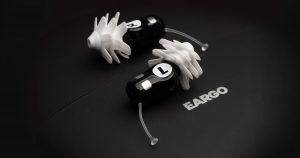Telemedicine and direct-to-consumer medical devices have enjoyed a dramatic uptick in use during COVID-19, as patients and providers alike navigate new paths of contactless care. Eargo is working on putting its “virtually invisible” hearing aids, which rest directly in the ear canal, into the hands of more customers as office visits and physical examinations slow.
At the end of July, Eargo announced that it raised $71 million in Series E funding led by Glide Healthcare and Longitude Capital, both new investors. According to the WHO, approximately 500 million people around the world experience some sort of “disabling hearing loss.” Eargo has actually experienced growth during the pandemic despite the drop in brick-and-mortar visits, perhaps because consumers experience less negative stigma ordering hearing aids online than during physical examinations.
According to Eargo president and CEO Christian Gormsen, “While it is estimated that approximately 43 million people in the US suffer from hearing loss, only approximately 27% own a hearing aid, largely due to the stigma and inconvenience of the traditional clinic-based model. Eargo has revolutionized the hearing loss solution, offering a highly advanced hearing solution available through a virtual clinic model.”
Eargo has moved quickly to tear down barriers normally preventing patients from being able to correct their hearing loss. The company has developed an online screening system and telecare support for its FDA-approved, rechargeable, exempt Class I hearing aid system.
The San Jose-based company offers a product with increased bandwidth, improved sound quality, and myriad options for personalization via its mobile app. For a little over $2,500, customers can change settings for optimal performance in a variety of settings, depending on levels of background noise. Pre-sets include meeting, restaurant, crowd, theater, phone, and TV options, as well as completely programmable settings. Treble and bass can be adjusted per individual ear, and the system connects to the app via Bluetooth.
With Eargo’s app support, patients can connect with doctors and hearing professionals who can tweak settings remotely, based on user feedback. Prior to this round, Eargo had raised $175 million. The company hopes the new influx of capital will help meet increased consumer demands and keep up with its ever-expanding business.























